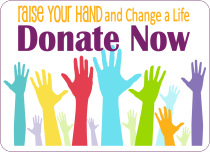Adults Need Strong Literacy Skills
The United Nations Educational, Scientific and Cultural Organization (UNESCO) defines literacy as the "ability to identify, understand, interpret, create, communicate and compute, using printed and written materials associated with varying contexts. Literacy involves a continuum of learning in enabling individuals to achieve their goals, to develop their knowledge and potential, and to participate fully in their community and wider society."
At the heart of the UNESCO definition is the message that literacy is the key to fully participating in all aspects of life.
Family….Work…..Spiritual….Social….Civic
The impact of low or limited literacy is difficult to imagine. Here are a few revealing facts that we do know about the high cost of illiteracy in today's society.
NATIONALLY
- It is estimated that limited literacy skills cost business and taxpayers $225 billion in lost wages, profits and productivity annually.
- U.S. Department of Education statistics reveal that 60% of prison inmates are illiterate and 85% of all juvenile offenders have reading problems.
- 75% of school dropouts report reading problems and at least 50% of young adults with criminal records have reading difficulties.
- 29% of adults in America cannot read a newspaper article written at the 8th grade level and 14% cannot read above the 5th grade level
- 43% of those with low literacy live in poverty.
IN NEW JERSEY
- In 2003, 17% of New Jersey's population lacked basic prose literacy skills (8th grade reading level) compared to 14.7% nationally, according to the U S Dept of Education.
- 40%-60% of students in New Jersey's urban school districts drop out of school with a reading level below 9th grade.
- One million New Jersey residents over age 25 do not hold a high school diploma
- One in four New Jersey residents speaks a language other than English at home
- The Migration Policy Institute's 2008 report stated that New Jersey ranked third in the country by percent for the number of foreign-born residents (19.8%).
IN CAMDEN COUNTY
- In the City of Camden, 406 teens dropped out of school in the 2005-2006 academic year, among the highest of any school district in New Jersey.
- The National Institute for Literacy estimated that 49% of Camden City residents read below the 2nd grade level.
Adults with low literacy levels struggle to handle everyday communication. They frequently develop low self-esteem, find it difficult to get and keep a job ,they live in poverty and often resort to crime.
Adults need strong literacy skills ...
To raise children with strong literacy skills. Reading to children at home, helping with homework, actively participating in their school life is essential to raising children with the strong literacy skills they will need as adults.
To be good employees. Applying for, getting and keeping a good job requires strong literacy skills. Higher paying jobs with promotion opportunities are only available to employees with strong literacy skills.
To stay healthy. Reading medical directions, understanding doctor's orders, communicating symptoms all require literacy skills.
To be active in the community. Adults with low literacy skills tend to avoid participation in group or community activities. They generally do not vote in elections and seldom volunteer. The community benefits greatly when citizens participate actively.
To be heard. Without literacy skills, people have no way of voicing their opinions and being heard. They cannot affect change, report a problem or right a wrong that is impacting their lives. To have a voice, they must be able to read, write and speak the language.















